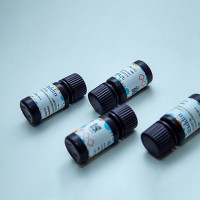Enzymatic Synthesis of Peptide in Water-Miscible Organic Solvent/Supercritical Carbon Dioxide
互联网
互联网
相关产品推荐

DYKDDDDK Synthetic Peptide
¥200

HiFiScript gDNA Removal cDNA Synthesis Kit,阿拉丁
¥1047.90

L-α-磷脂酰胆碱,8002-43-5,≥40%(enzymatic), from dried egg yolk, Type X-E,阿拉丁
¥279.90

Recombinant-Leucoraja-erinacea-Organic-solute-transporter-subunit-alphaostaOrganic solute transporter subunit alpha; OST-alpha
¥11914

ccmK2/ccmK2蛋白Recombinant Synechocystis sp. Carbon dioxide-concentrating mechanism protein CcmK homolog 2 (ccmK2)重组蛋白/蛋白
¥2328
相关问答
推荐阅读
Enzymatic Synthesis of Glycosides in Aqueous-Organic Two-Phase Systems and Supersaturated Substrate Solutions
Synthesis of Peptide‐Oligonucleotide Conjugates by Diels‐Alder Cycloaddition in Water
Enzymatic Synthesis of -Butylglucoside in a Biphasic Butanol-Water System Using the -Transglucosidase from Aspergillus niger

